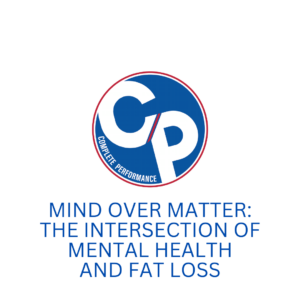Did you know that it’s estimated that up to 60% of professional to semi-professional athletes overtrain at some point in their life?
Did you know there’s an actual medical condition that can result from overdoing it in the gym?
Look, before you click the big red X on your screen because you’re not a professional athlete, here me out.
Until recently, doctors, therapists, and coaches didn’t quite understand this idea of overtraining; however, they’re now finding it to be a much larger issue among athletes and even more so amongst general population adults.
What Is Over Training?
Overtraining is a condition wherein an individual performs more training than he or she can recover from leading to a decline in performance.
In reality, overtraining falls middle of the pack in a series of progressions of stress on the body.
The Training Progressions
Stress
This is the act of applying a stress that sparks a response from the stress response system (AKA sympathetic nervous system). The body responds appropriately and returns to normal activities.
Overreaching
Overreaching comes when a stress is applied too intensely or for too long causing a temporary bodily response. Symptoms of overreaching include extended soreness, feeling unwell, disturbed sleep, and abnormal mood fluctuations. If the body is cared for, one is not at risk for long-term damage or significant disruptions to performance.
Overuse
Overuse comes following successive bouts that would individually lead to overreaching. Symptoms of overuse don’t differ too far from overreaching; however, overuse typically presents itself as a nagging ache, pain, or injury at some point in the body. While it is still a temporary bodily response, it does take longer than a few days off and may require medical or rehabilitation interventions.
Overtraining
Without recovering from overuse, one progresses to overtraining, which is a chronic condition of extreme fatigue. At this point you cannot continue to neglect the symptoms presenting themselves – extreme fatigue, changes in mood, poor sleep, and chronic illness or injury. Overtraining comes because of prolonged, high volume, high intensity, repeated, and recurring monotonous training systems. It does require significant time off from training, additional rest, and likely some medical interventions.
Well Done (AKA Extreme Fatigue)
This is the real end of the line, wherein you’ve ignored all the other stages in the training progression and you’re facing extreme hypothalamic-pituitary-adrenal axis (HPA Axis) issues. If you’ve reached this point, tasks such as getting out of bed, walking to the bathroom, and mundane house chores are incredibly draining. When you’re facing extreme fatigue, there are opportunities for healing, but it only comes with significant time away from exercise, a prioritization of health, and rehabilitation.
Are you wondering where you fall? Are you concerned you might be overtraining?
Check these resources out:
TRAINING: Signs You’re Over Doing It
[GUIDE] 10 Signs You Might Be Over Training
How to Prevent Yourself from Overdoing It?
Let’s be honest, nobody wants to move up the training progressions into Well Done.
Heck, we don’t even want to reach overtraining.
So, how do we prevent it?
Here are 5 tips to prevent yourself from overdoing it:
#1 Optimal Combination of Training & Recovery
Remember in last week’s blog how I talked about training frequency (BLOG LINK)?
No matter who you are or how badly you want results right now, you do not need and should not train daily.
Be sure that you’re following a training program that balances training and recovery and remind yourself that most individuals can see incredible results from training 2 to 4 days per week.
Want to see how our programs put this into action?
#2 Appropriate Sleep Routine & Schedule
Sleep is the best way for our body to recover.
This whole, “sleep when I’m dead” concept only creates more issues in your life.
Gradually, work your way up to the point where you’re IN bed 7 to 8 hours per night. If you start and you’re not even close to that, progressively add time in 10-to-15-minute increments.
In addition, settle into an evening and morning sleep routine to prepare your body for sleep and waking.
Looking for more Sleep Secrets? Check them out HERE!
#3 Healthy Diet
Many of recovery issues are remedied with a well-constructed diet.
As general recommendations, here’s what I suggest:
- Work with a coach to build your individualized plan.
- Eat enough no matter how badly you want to lose body fat.
- Limit the heavily processed foods.
- Hydrate
#4 Adequate Self-Care
Take care of your mental health.
Check in regularly with your mind and body to find out what it needs.
Keep note of your patterns in mood as indicators of your status in the training progression.
#5 Enjoy Life
Do things you enjoy!
Partake in hobbies.
Spend time with family and friends.
And make sure you have a life outside of exercise no matter how focused you are on results.
About The Author
Jordan Davies is the Co-Owner of Complete Performance. Jordan has her B.S. in Exercise Science and Psychology, and her M.A. in Holistic Health Studies. She is a CSCS certified strength and conditioning coach, and a PN-1 and NCI-1 certified nutrition coach. She loves to study how the human body needs to be moved and nourished and making that fit to your unique lifestyle. Click Here Now to Apply for Coaching with Jordan.




